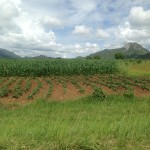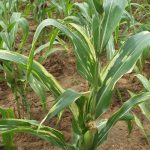In view of a wide diversity of research findings and changing socio-political conditions since the FISP started eight years ago, the Lilongwe University of Agriculture and Natural Resources (LUANAR) in collaboration with the Malawi Strategy Support Program (MaSSP) International Food Policy research Institute (IFPRI) and several collaborating partners is organizing a one and a half […]
Growth, Poverty and Nutrition Linkages and the Role of FISP
Since its inception in 2005/06 Malawi’s Farm Input Subsidy Program (FISP) has been at the center of national and global interest. After its initial success in transforming Malawi from a food insecure country to a surplus producer of maize, many African countries have followed suit, modeling their own input subsidy programs on the FISP. However, in […]
Policy Note 17: Budget Allocation, Maize Yield Performance, and Food Security Outcomes Under FISP
Food security in Malawi is generally equated with adequate maize production as the country’s main staple crop accounts for more than 60 percent of total food consumption. Malawi has a long history of subsidizing agricultural inputs, either as a general policy to ensure national-level food security or as a response to poor harvests. As such, […]
Project Note: Farmers’ Perspective on the Implementation of the Affordable Inputs Programme
This note provides an assessment of the first year of implementation of the Affordable Inputs Programme (AIP) from the perspective of rural households and communities in Malawi. The data come from a nationally representative panel survey of 2,449 rural households in 299 communities. At the household level, users of inorganic fertilizer, the amount applied per […]
Insuring the AIP: The Devil is in the Details
Insuring the AIP - The Devil is in the Details - an extended Op-ed by Bob Baulch and Kramer outlining the pro and cons of different ways of insuring Malawi's new Affordable Inputs Program.
- « Previous Page
- 1
- 2
- 3
- 4
- …
- 9
- Next Page »



